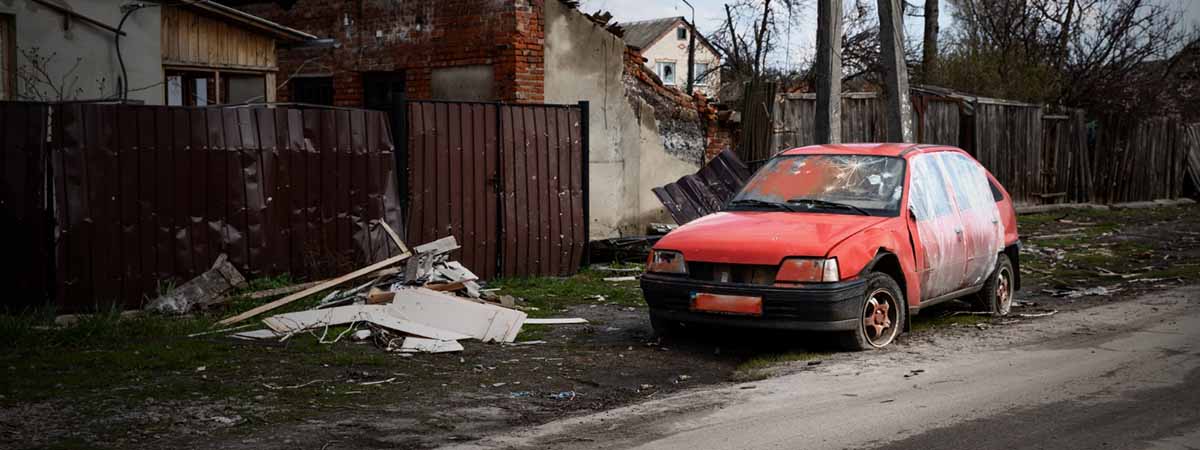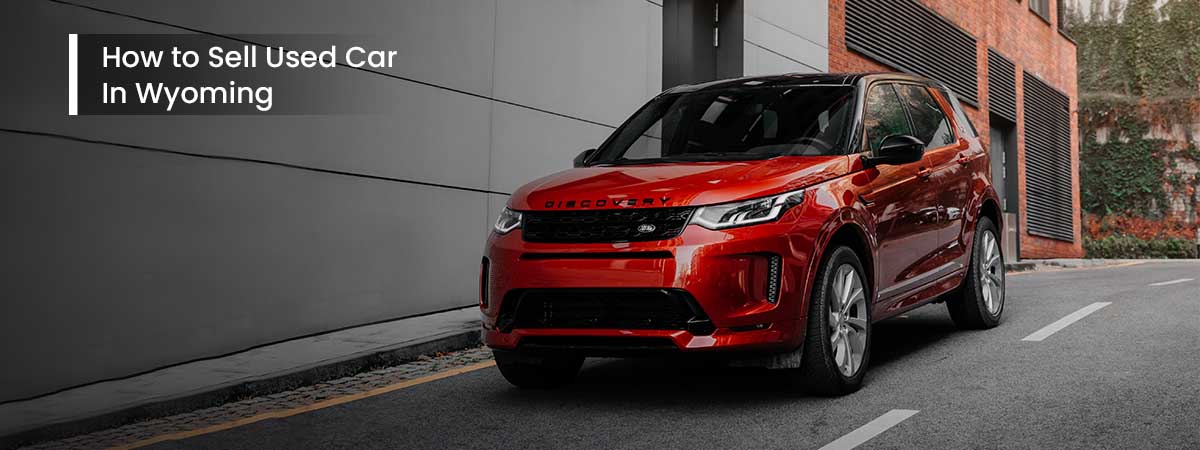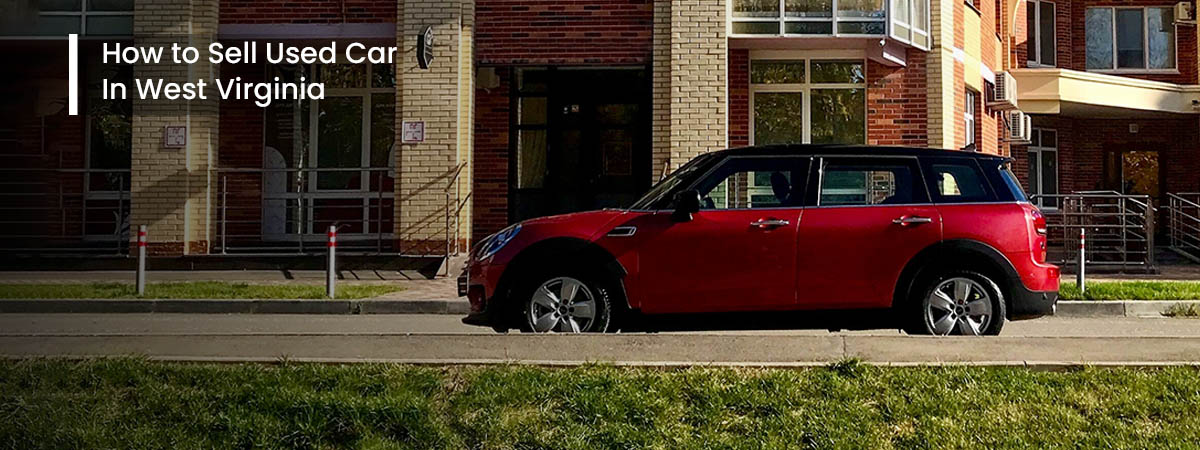How to Sell a Used Car In Virginia?

The procedures and approach for selling a car online vary by state. Discover how to sell your used car or truck in Virginia confidentially.
If you live in Virginia's Tidewater, Piedmont, Blue Ridge Mountain, Valley, and Ridge, or Appalachian Plateau regions and are considering privately selling your old automobile or truck, you've come to the perfect location. We've described the five processes and documents necessary for selling an automobile in Virginia below.
Private automobile owners in Virginia are permitted to sell or exhibit up to five vehicles in 12 months. Any car purchased more than five times within that time necessitates the seller becoming a licensed and approved dealer in Virginia. According to the Virginia Department of Motor Vehicles, one out of every three automobile sales occurs between two private individuals rather than a customer and an authorized automotive dealer. This is why hundreds of thousands of Virginia private vehicle owners have used cashforcarsinc.com to sell their vehicles.
Most states in the United States regard the car title as a legal document, thus using the legal names (no nicknames) of both parties involved as well as readable handwriting in black or blue ink. Mistakes, typos, and the use of correction fluid, such as White Out, may invalidate the document, so be cautious and take your time filling it out.
Step 1: Organize and collect all vehicle documents
Find all maintenance records, the owner's manual, and other vehicle papers.
If you have lost or stolen your title, you must first file a VSA 67 Application for Replacement of Substitute Title. To sell a vehicle in Virginia, you must have a legal title. If the vehicle's owner is deceased, you will also require a copy of the will, a certified death certificate, and an "Authority to Transfer Virginia Title Certification" (VSA 24). If you are a joint owner with the right of survivorship and your co-owner has died, you may file for a replacement title to have the deceased owner's name removed. Fees will apply based on your circumstances.
A valid emission inspection is required for gasoline-powered passenger vehicles that are less than 25 years old before January 1 of the current calendar year or diesel-powered passenger vehicles that are 1997 or newer and are registered in the northern Virginia counties of Arlington, Fairfax, Loudoun, Prince William, and Stafford, as well as the cities of Alexandria, Fairfax, Falls Church, Manassas, and Manassas Park. Vehicles built in the current model year or any of the three immediately prior model years are exempt from the biannual emission inspection under Virginia law. Most hybrid cars are exempt; however, all hybrids must comply with Virginia's on-road emissions program.
Step 2: Title Transfer
If more than one seller is listed on the title and their names are separated by "or," just one of the sellers is required to sign the car title to transfer it to the buyer. If the title lists more than one seller and their names are separated by "and" or "and/or," both sellers must sign the title before it is transferred to the buyer. If nothing separates the names of the owners, both must sign. The same is true for many purchasers.
The National Highway Traffic Safety Administration's (NHTSA) odometer disclosure standards, which affect some private car purchases in Virginia, were revised in December 2020. Any vehicle of the model year 2011 or newer (2012, 2013, etc.) that is transferred between January 1, 2021, and December 31, 2030, will require an odometer disclosure. Beginning January 1, 2031, every vehicle less than 20 model years old will be required to have an odometer disclosure. Previously, the NHTSA only mandated disclosure for the first ten years. Cars manufactured before 2010 are exempt from odometer disclosures. The Virginia DMV website has an odometer disclosure form.
Sign your name in Section "A" on the front of the title, provide the buyer's name and address, and document the vehicle's odometer reading on the date of sale. Include the final sales price in Section "A" if the car is being sold. If the car is being donated, write "charitable gift" on the title as the sale price. Ensure that the buyer signs the title to finalize it. For any car that is more than 5 years old, the buyer and seller must both attest to the final sales price using the Vehicle Price Certification (Bill of Sale) form. In Virginia, you can even have a handwritten bill of sale, provided it has the same information. Many sellers and purchasers have the bill of sale notarized. If the vehicle is 5 years old or less and the sales price is more than $1,500 less than the Blue Book trade-in value, you must complete Form SUT 1A, Affidavit of Vehicle Purchase Price. This form is required to be notarized.
Step 3: Take the seller's license plates off the car
In Virginia, the seller maintains the sold vehicle's license plate. If you acquire a new car, you may transfer your old license plate to the new vehicle. If you do not transfer the plates to another vehicle, you may return the plate to any Virginia DMV facility. If your vehicle registration period is six months or longer, you may be eligible for a refund by completing the Application for Vehicle Registration Refund Form FMS-210.
Step 4: Notify the Virginia Department of Motor Vehicles
Notify the DMV, either online or by phone, that you have sold, exchanged, or donated the car.
Step 5: Cancel your insurance policy
Notify your insurance company that your vehicle has been sold, exchanged, or donated. If you acquire a replacement car, you may transfer insurance coverage to the new vehicle by providing the insurance provider with the necessary information. Before you register the replacement vehicle with the Virginia DMV and transfer or acquire new plates, you must get liability insurance for it.
Insurance firms must inform the Virginia DMV if a vehicle's insurance is cancelled, added, or changed. If you fail to tell the DMV that you no longer own the car and your insurance provider cancels liability coverage, the DMV will display that the registered vehicle in your name is uninsured. Because driving an uninsured, registered car is prohibited, the Virginia DMV may suspend your driver's license and vehicle registration rights.
Visit the Virginia DMV website for further information.
The Easier Way to Sell Your Car
Now that you've learned everything there is to know about selling a car in Virginia, it's time to determine where to list it. Cashforcarsinc.com makes it simple to sell your car. With ready-to-sign state documentation, encrypted chat, and more, our platform provides all the tools and recommendations you need to make the transaction a breeze.




